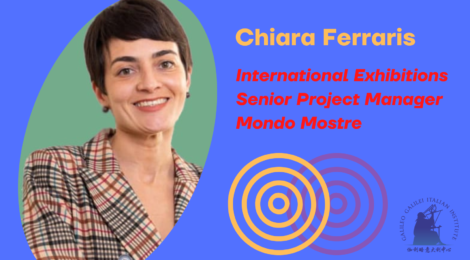
Galilei Circle of Friends – Interview with Chiara Ferraris
Dear readers, today we bring you the successful story of Chiara Ferraris, a dear friend of our Institute, who has a long and fruitful experience working in China and with China. Chiara spent years in Kunming and Chongqing and has a deep understanding of Chinese market and its dynamics. She is currently working as a project manager for Mondo Mostre, organising Italian art exhibitions in China and Asia. As Galilei, we are really thankful for Chiara’s work in Chongqing and for her continuous support in the city.
Enjoy her story!
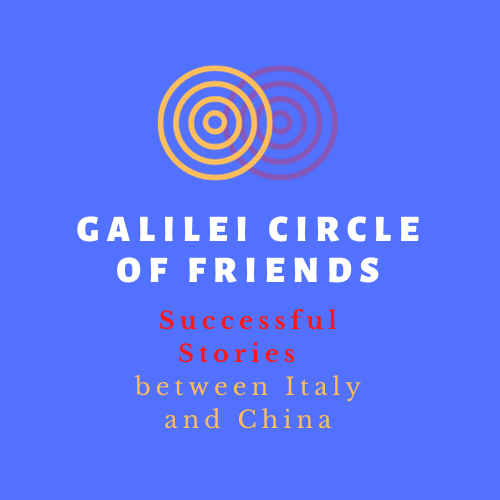
INTRODUCTION – Personal relationship with China
How did your experience with China begin? Was it a casual meeting, related to your work, for pleasure?
I graduated from the Department of East Asian Studies at Ca’ Foscari University and spending time in China was part of my Degree. My first trip to Asia was actually to South Korea: thanks to a scholarship, in 2008 I spent a month in Daejeon, and some time traveling afterwards. I am often asked why I decided to study Chinese? I have always been very fond of foreign languages and that was my main drive: I spoke fluent English, German and French, had picked up some Spanish on the way, and I wanted a new challenge. I forgot most of my Korean over the years, and I feel like there’s still a lot to learn in Chinese. One of the things I did to pass time during quarantine last year was to start a beginners course in Russian. But this is perhaps another story! To get back to your question, my hometown Bergamo has a good department of Foreign Languages – back then, mostly Western languages – but, since I wanted to move to a different city, and I needed a valid excuse, I chose Chinese. Because of the enthusiasm about China’s growth and opening-up, many people told me it would be a good choice in terms of future work opportunities. Bilateral trade was increasing and many companies were outsourcing and investing in China, which seemed like the land of opportunities. To me, this proved correct, albeit in a very different way from what I expected.
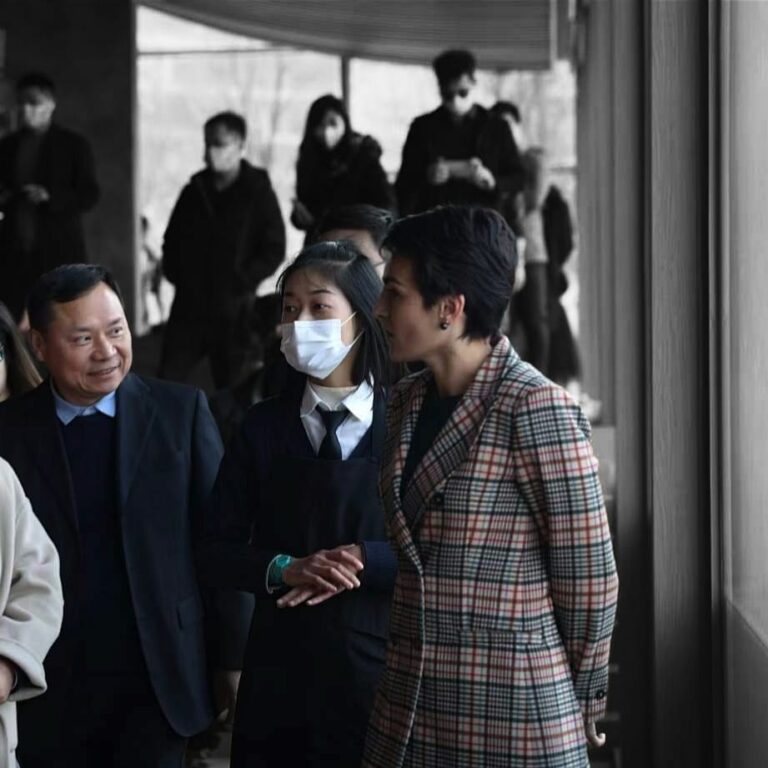
Discussing details with local partners for the 2021 Chengdu-Europe Culture Season
How has your relationship with China evolved over time?
China has truly become a second home to me! Or, as a good friend of mine would say, another “life”. After spending some time in Germany and Austria, I felt I was ready for a new challenge and choose to move to China, to travel and explore more of the world, meet new people and get some work experience, but first and foremost to finally learn the language properly. After six months studying in Beijing, I was better at it, but fluency was a looong way ahead. In my opinion, “immersion” is the best strategy to learn a language, so I knew I needed to spend more time in China.
I signed up for a six-month studying/internship in Kunming, and I ended up staying more than six years in Yunnan, followed by five years in Chongqing. Today, I can finally say I am fluent, and this makes me really proud!
Looking back, my years in China are full of beautiful memories, the people I met and the friendship I formed over the years are very important to me.
One moment I always go back to is when, after the first six months, I was supposed to fly back to Milan from Kunming. I called my family instead and told them: “ I am not taking the flight back”. I’ll let you imagine the reaction – luckily, my parents have always been supportive and they understood I was, somehow, trying to find my path and, even if I didn’t know exactly where it would lead me – and I still don’t! – I had a few more steps to take in China.
The funny thing is, on that same day the flight was scheduled, I took a bus instead with some fifty other friends, and we travelled to Xishuangbanna for a friend’s wedding. We spent a weekend in a remote village near the border, which, to this day, I still can’t pinpoint on a map, lost among banana plantations, partying with the locals from the bride’s family.
Over the years, there were ups and downs, and many challenging moments. I think it’s all about compromise, and finding balance. Choosing to do something different, on the other side of the planet, I had to learn what was acceptable to me and what wasn’t, what was really important and what I could do without, and this learning process has been challenging and rewarding at the same time. And that’s also why I left, less than a year ago: China has changed a lot since 2009, overall there is a very different vibe, opportunities are still there but harder to catch. After the pandemic, watching the reaction to the invasion of Ukraine by Russia, I realised it was time for a change.
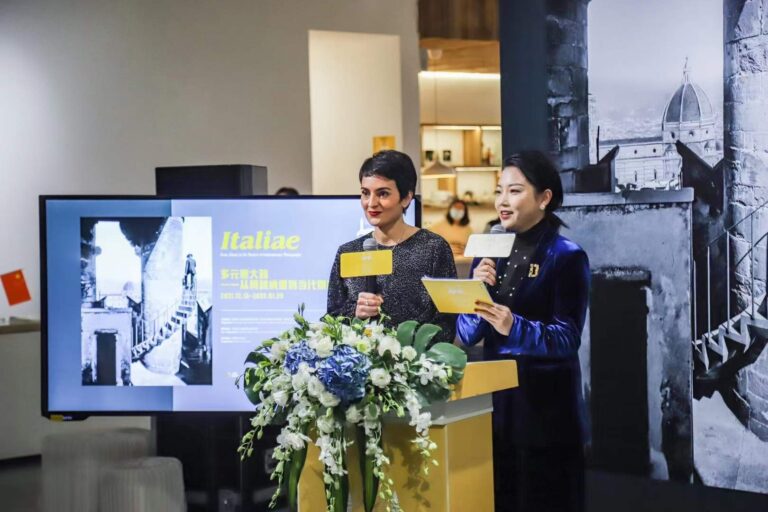
Introducing a photography exhibition from Fondazione Alinari in Chengdu
What has your experience in this splendid country taught you at a personal level?
Contemporary society highlights differences more than similarities, how one village/region/country differs from the neighbouring one, in terms of culture, heritage, history, literature and so on. But in fact, we have more in common than we think. Moving and living in another country has taught me to connect with people more easily and also more deeply. I had to learn to challenge my personal opinions and belief system: disagreeing with others, accepting the fact that they have a different point of view, and understanding where it comes from.
Last but not least, over the years in Kunming and especially in Chongqing I started running again and trail-running became a very important part of my life. Since then, I run my first ultramarathon and many road races, and, after the official one was cancelled due to the pandemic, we organised our own Spartan race. I joined a beautiful community of like-minded people, some of which became my closest friends, and we spent our spare time exploring the hills around Chongqing, travelling to nearby parks and mountain areas for races, or running from the city center to the local hotsprings. These are some of my best memories, and probably what I miss the most.
BUSINESS in China – Kunming and Chongqing
Tell us about your experience in Kunming. What was your role there and what were the main results you achieved over the years in that part of South Western China?
Over the years in Kunming I worked in different industries, from business consulting, to writing and editing, education and management. It was an invaluable opportunity to experiment and grow. I was able to publish interviews and travel articles on GoKunming, while starting a career in education. I am still in touch with some of my students, who have in the meantime grown up and built a career or are attending university, and I have always found this part very fulfilling.
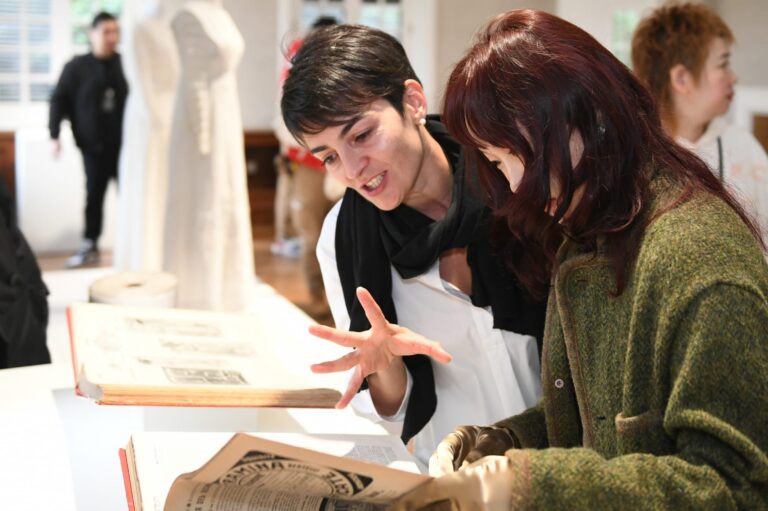
Finalizing details for a fashion exhibition in Shanghai
What were the main challenges you met in your experience in Kunming, and what were the positive surprises?
“The mountains are high and the Emperor is far away” – or so goes the saying about Yunnan. It’s the most beautiful province in China, with an incredible variety of climate, history, local cultures and traditions. Travelling to remote areas near the Himalayas or to the rice terraces in the south and the Burmese border to the West was mind-blowing. Of course, being rather remote and less developed also meant that work opportunities were limited, and that the burocracy and visa restrictions quite challenging.
You then moved to Chongqing to work at the Consulate General of Italy, working with a Sino Italian team in Chongqing. Tell us about your experience there and the best memories you have about the “spicy city” from a professional point of view.
I am very proud of my work at the Consulate General of Italy in Chongqing. I was the interpreter for Italy’s Deputy Prime Minister during his visit to China in 2018, and multiple times for the Ambassador and important political and commercial delegations coming to the South-West.
I organised the first Italian Day of Contemporary Art in South-West China, many National Day receptions, photography and art exhibitions, concerts, and a series of Sino-Italian online webinars, building a connection between Italian and Chinese enterprises during the pandemic years, in various fields from environmental protection technologies to cultural heritage preservation.
How important was it to know the local culture and language in managing daily activities and projects?
Knowing the local culture and language is very important and leads to better connections to local people and a deeper understanding of culture and traditions. This helped me a lot in my work, and has always been very much appreciated by local partners. On a personal level, it helped me connect with my colleagues, some of which became close friends, and this helped me really feel at home in Chongqing.
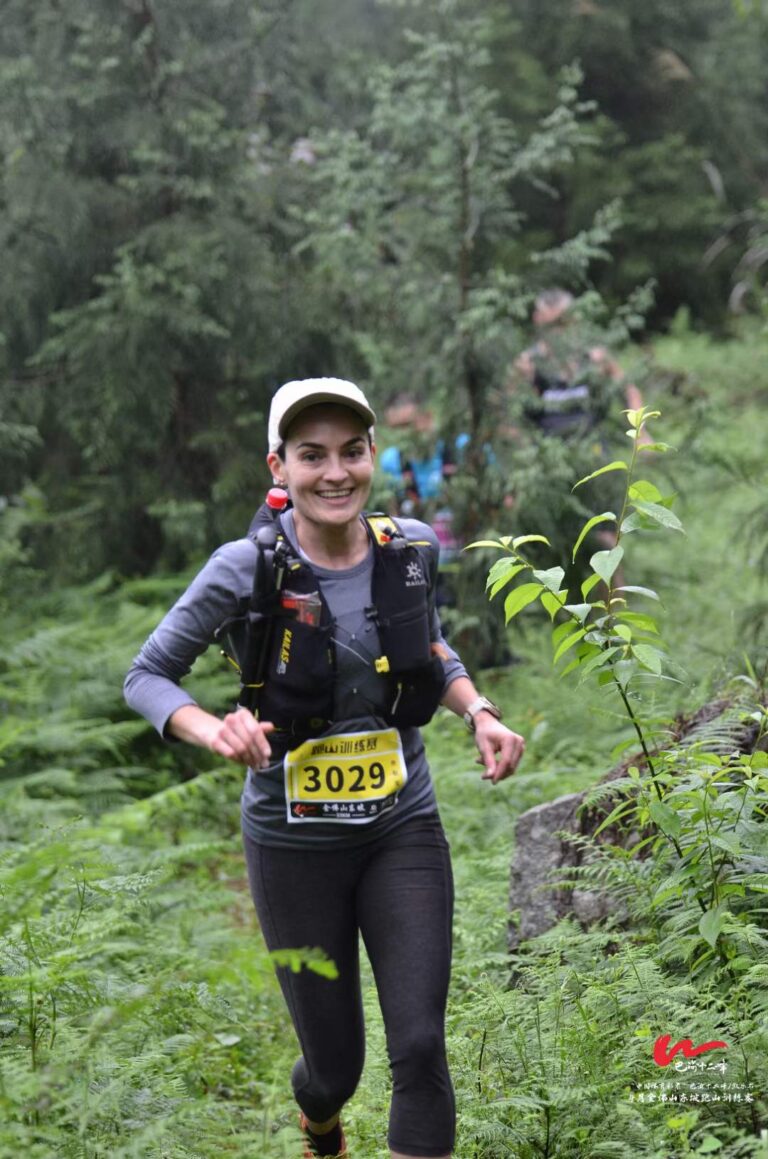
Trail running in Jinfo Shan, Chongqing
KEEP LOOKIN EAST – Back to Italy and new phase
After the pandemic you decided to come back to Europe. Tell us more about this new phase in your life, your activities and your new goals.
I am currently working as a project manager for MondoMostre, organising Italian art exhibitions in China and Asia. I am very happy I have been able to keep a connection to China while working in the cultural sector.
Moving “back” didn’t come without challenges. It’s been almost a year now and I can tell you one thing: “Reverse Culture Shock” is real and more challenging than I thought!
In the future I am hoping to continue working in the field of international relations and cultural exchange, creating projects that enable people to connect, exchange views and challenge their beliefs. Also, I have always wanted to do some further studying. Hopefully you’ll interview me again in a few years and I’ll be able to tell you more about this and other personal projects I am working on.
Interview by Marco Bonaglia



